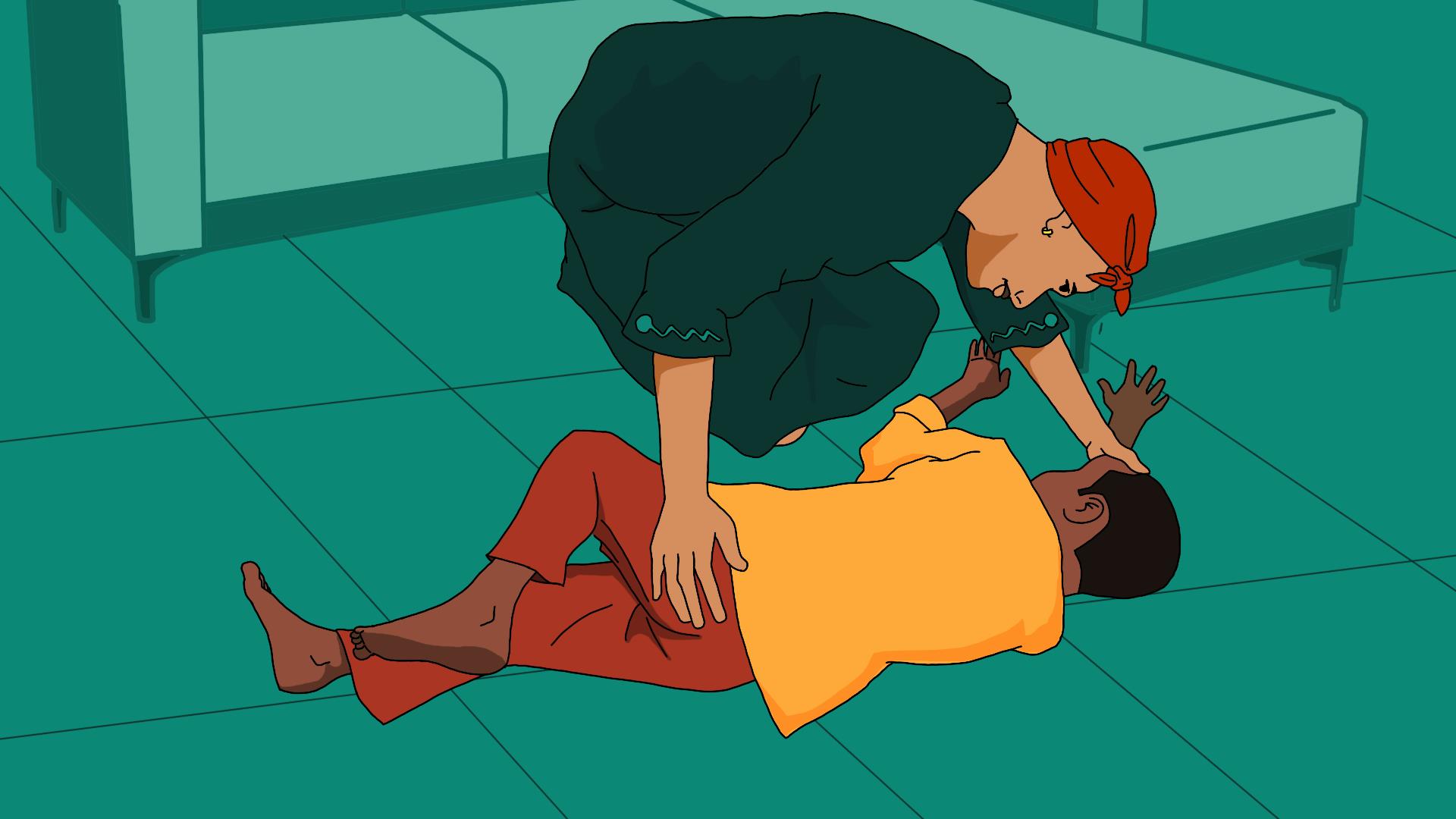🎧 Listen to: Seizure

Seizure
What is a seizure?
A seizure is a sudden change in movement or awareness caused by unusual electrical activity in the brain. This can lead to jerky body movements, loss of control, strange sensations, or even a momentary blank stare.
In simple terms, the brain sends and receives electrical signals to control everything we do like walking, talking, and even thinking. When these signals become too strong or disorganized, it can cause a seizure.
Seizures are more common than many people think. In Africa, millions of people, including children and adults, experience seizures every year. Many cases are caused by infections like malaria, meningitis, or even complications at birth.
How common are seizures in Africa?
- According to studies, epilepsy affects nearly 10 million people in Africa. Epilepsy is a condition where a person has repeated seizures.
- In some parts of Africa, up to 85% of people with epilepsy do not receive proper medical care.
- Febrile seizures (caused by fever) are common in children under five, especially due to malaria and other infections.
- Brain injuries, infections, and untreated medical conditions make seizures more common in African communities.
Types of seizures?
There are different types of seizures, depending on which part of the brain is affected. Here are the main types:
Focal onset seizures (partial seizures)
These seizures start in one specific part of the brain. They can be:
- Focal aware seizures: The person remains awake and aware but may feel unusual sensations like tingling, strange smells, or sudden emotions.
- Focal impaired awareness seizures: The person may not respond, stare blankly, or move strangely for up to 2 minutes. They may not remember the event afterward.
Generalized onset seizures
These start on both sides of the brain and include:
- Tonic seizures: Muscles stiffen suddenly.
- Clonic seizures: The body jerks uncontrollably.
- Tonic-clonic seizures (formerly grand mal): A mix of stiffening and jerking. The person may fall and lose consciousness.
- Myoclonic seizures: Sudden muscle jerks but no loss of awareness.
- Absence seizures (petit mal): A person may blink repeatedly or stare into space for a few seconds.
- Atonic seizures (drop attacks): Sudden loss of muscle strength, causing falls.
Unknown onset seizures
Sometimes, it’s unclear where a seizure starts, especially if no one witnesses the beginning.
Signs that someone is having a seizure?
Before a seizure, a person may feel warning signs, including:
- Sudden fear or anxiety
- Feeling sick in the stomach
- Dizziness or confusion
- Jerky movements of arms or legs
- A sense of déjà vu (feeling like something has happened before)
During a seizure, signs include:
- Uncontrollable muscle spasms
- Drooling or frothing at the mouth
- Falling to the ground
- Clenching teeth or biting the tongue
- Unusual noises like grunting
- Loss of bladder or bowel control
Causes of seizures?
Seizures can happen for many reasons. In Africa, some common causes include:
- Infections: Malaria, meningitis, HIV, and other infections affecting the brain.
- High fever: Especially in children under five (febrile seizures).
- Head injuries: From accidents, childbirth complications, or violence.
- Low blood sugar (hypoglycemia): Common in people with diabetes or malnutrition.
- Stroke or brain tumors: More common in older adults.
- Genetics: Seizures may run in families.
- Substance abuse or withdrawal: Alcohol and drug use can trigger seizures.
Effects of seizures?
Living with seizures, especially epilepsy, can affect daily life. Some effects include:
- Short-term: Falls, injuries, burns, and fractures.
- Long-term: Difficulty with work, school, driving, or social life.
- Mental health impact: Stress, anxiety, and depression are common in people with epilepsy.
How are seizures diagnosed?
A doctor may use different tests to diagnose seizures:
- Blood tests: To check for infections, low sugar levels, or other issues.
- EEG (electroencephalogram): Measures brain waves to detect unusual electrical activity.
- Brain scans (CT scan, MRI): Help find injuries, tumors, or infections in the brain.
How are seizures treated?
Treatment depends on the cause. Some treatments include:
- Medications: Anti-seizure drugs help control seizures in most people.
- Treating infections: If malaria, meningitis, or other infections cause seizures, treating the infection can stop the seizures.
- Brain surgery: In rare cases, surgery may help if medicines don’t work.
What should you do if someone has a seizure?
If you see someone having a seizure:
- Stay with them until the seizure stops.
- Remove sharp objects nearby to prevent injury.
- Place them on their side to help with breathing.
- Do not hold them down.
- Do not put anything in their mouth (not even a spoon!).
Seek medical attention, especially if it lasts more than 5 minutes or happens repeatedly.
